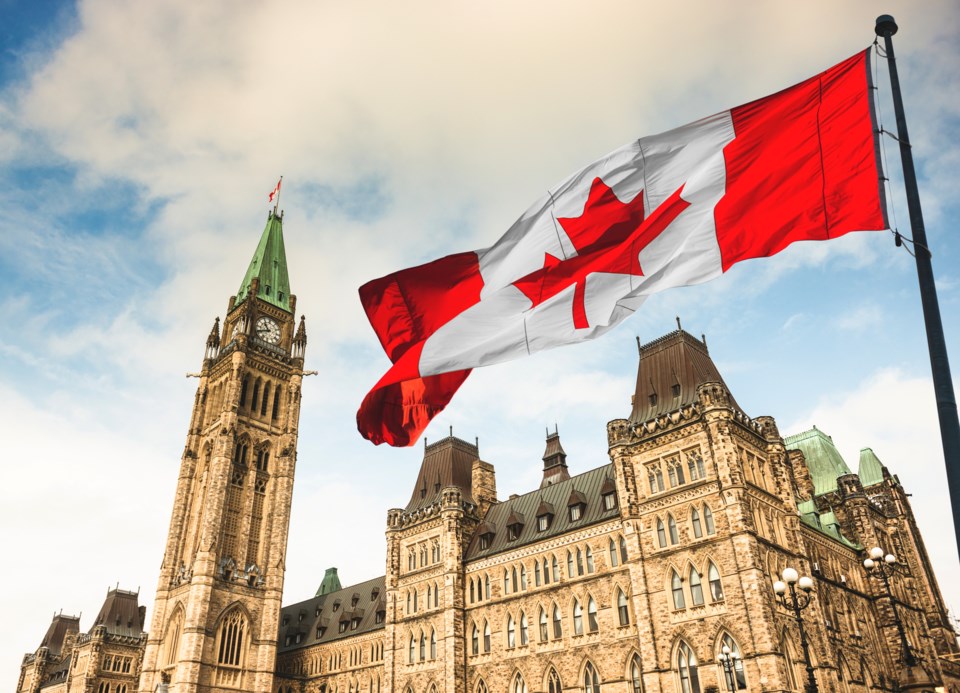The Conservative member of Parliament who lost the Steveston-Richmond East seat in the 2021 election to a Liberal candidate after a Chinese social media disinformation campaign said Tuesday’s report against a foreign interference public inquiry sends the wrong message.
"Any foreign power interested in meddling with our affairs, they see transparently how high the bar is,” Kenny Chiu said in an interview. “As long as you adhere to the customs of Canadians, and not get caught, and the receipt that you used to buy-off certain people to act on your behalf, if it’s not found, then it's okay.”
In special rapporteur David Johnston’s 59-page interim report, ordered just over two months ago by Prime Minister Justin Trudeau, the former governor general concluded foreign interference by the People’s Republic of China (PRC) is a reality. However, evidence that it skewed the 2019 and 2021 federal elections was insufficient, so he recommended against a public inquiry.
Johnston, who is paid at least $1,400 a day through to Dec. 12, said he had access to top secret information and interviewed top officials, but could not disclose much of what he learned due to national security concerns. He said he would instead hold public hearings before his final report in October, about improving Canada’s ability to spot and stop foreign interference in elections.
Chiu said Johnston may have been a great governor general between 2010 and 2017, but that he was the wrong person for the job because of his family’s long friendship with the Trudeaus and that the Liberals were the beneficiary of China’s meddling in 2019 and 2021.
“What he should have done is to propose an inquiry that looks deeper, that collects more information, find out more and empower the national security apparatus to do more,” Chiu said. “Instead, he is nailing the national security and intelligence community on the cross, basically accusing them for the leaks.”
Johnston discounted media coverage, including the Feb. 17 Globe and Mail report on a leak from the Canadian Security Intelligence Service (CSIS) about Chiu’s loss. He found that Chinese-Canadian MPs, including Chiu, “were and remain of particular interest to the PRC,” but the Chinese government’s intention in 2021 was to assist pro-China candidates regardless of party. Notably, he referred to a “misinformation” campaign against Chiu, rather than disinformation, and said it could not be traced to a state source.
“It is clear that PRC diplomats did not like Mr. Chiu, who is of Hong Kong descent and not from Mainland China, and who sponsored a private members bill for a foreign agent registry,” Johnston wrote. “It is much less clear that they did anything in particular about it, although there was discussion that certain political figures who were perceived as anti-PRC would not be invited to PRC-sponsored events.”
The report did mention a WeChat article from Canada’s Hill Times and China’s Global Times that questioned then-Conservative leader Erin O’Toole’s get-tough-on-China platform, but “the re-circulation could not be attributed to any state actor.”
“I've been saying you'd be hard pressed to find the smoking gun with their fingerprints on it,” Chiu said. “So, you need to look elsewhere, you need to look thoroughly in other areas, but it looks like that's not what David Johnston is trying to look into.”
The Macdonald-Laurier Institute’s senior fellow Charles Burton, a former Canadian diplomat in Beijing, said the Chinese embassy in Ottawa is “probably cracking open the moutai (Chinese liquor) as I speak.”
“All that happened was that one of their Ministry of State Security agents was repatriated back to China,” Burton said, in reference Zhao Wei, expelled after a leak about the diplomat’s intimidation of Conservative MP Michael Chong. “They must know that CSIS would have quite a long list of people who are working under diplomatic cover on behalf of the Chinese Communist Party's United Front Work Department and the Ministry of State Security who – our government is sending out a very clear signal – will not be returned to China. Because Mr. Johnston's report essentially says that, move along, nothing to see here.”
Johnston blamed factual “misapprehensions” by the media, but he could not say what the facts were, due to national security concerns. He suggested those that leaked information be held accountable and that they may have been motivated by malice.
“I recognize that absent the leaks, I would not have been appointed to undertake my work. However, that does not justify the leaks, which risk great harm to the Canadian interest,” Johnston said.
Burton said dismissing both whistleblowers and journalists is a strategy bound to backfire.
“It will encourage more people to bring out more information to really leverage a public inquiry as more revelations of documents, that the government may not have acted on, come to the fore,” Burton said. "Mr. Johnston says the documents we haven't seen refute the ones that we have. I will believe that when I see it.”



